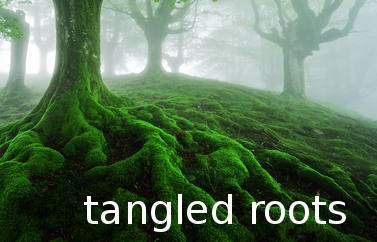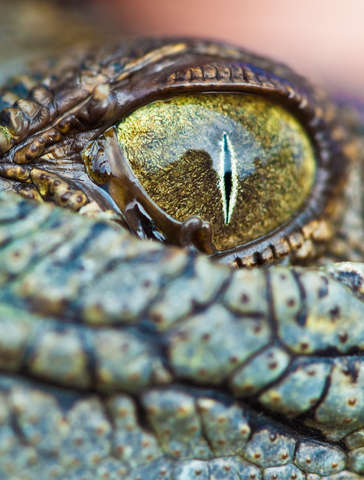Trauma is, of course, a complex phenomenon and there are a wide variety of useful and effective ways of thinking about and addressing it. This is the first in a series of essays on trauma and psychotherapy, addressing the experience of trauma from several perspectives, including psychoanalysis, existential psychotherapy, and mythological and religious systems.
Trauma and Insight
As terrible as the experience of trauma is, could it be that any positive or valuable insights might emerge from the experience of trauma? In the book Trauma and Human Existence, Robert Stolorow addresses that question.
“Does trauma free one for possibilities that are authentic? At first glance the answer would seem obviously to be negative, since, as Freud (1926) recognized, the most immediate impact of trauma is to feel overwhelmed and powerless - hardly in the mood for a possible resolution. Yet, as the smoke begins to clear a bit, traumatized people sometimes feel they have gained 'perspective,' a sense of what 'really matters.' " (1)
What is the nature of this new “perspective” that may arise from the experience of trauma? The experience of trauma makes evident one of the fundamental existential realities of our lives - that loss, pain, death, and unpredictability are all inevitable features of every human life.
For Stolorow, the traumatized have a heightened awareness - based on devastating first hand experience - of, “the inescapable contingency of existence on a universe that is random and unpredictable, and in which no safety or continuity of being can be assured.” (2)
"this monster which is life"
Mythologist Joseph Campbell has pointed out that mythological systems have evolved in all cultures, and that they reflect the existential challenges faced by all people everywhere. He has identified four primary purposes of mythological / religious systems. One of these core functions is to enable people to come to grips with the darker realities of life.
“Now, life lives on life. It’s first law is, now I’ll eat you, now you can eat me - quite something for consciousness to assimilate. This business of life living on life- on death - had been in process for billions of years before eyes opened and became aware of what was going on out there, long before Homo sapiens’s appearance in the universe. The organs of life had evolved to depend on the death of others for their existence. These organs have impulses of which your consciousness isn’t even aware; when it becomes aware of them, you may become scared that this eat-or-be-eaten horror is what you are.
The impact of this horror on a sensitive consciousness is terrific - this monster which is life. Life is a horrendous presence, and you wouldn’t be here if it weren’t for that.” (3)
Campbell believes that this fundamental reality is confronted in one way or another in all human cultures throughout history through the development of mythological / religious systems that mediate between the individual and the difficult realities of life. Every human individual, sooner or later, and in one form or another, must encounter this difficult reality - that “life is a horrendous presence.”
Tigers Above, Tigers Below
The Buddhist teacher Pema Chodron has addressed this existential situation from the perspective of a particular mythological system - Buddhism. She relates a story to illustrate both the fundamental human situation, and one possible positive reaction to it (there’s a hint of hope here, and I’ll address it more fully in subsequent articles). The story is referred to by many others as a Buddhist (and especially Zen Buddhist) tale.
“There is a story of a woman running away from tigers. She runs and runs and the tigers are getting closer and closer. When she comes to the edge of a cliff, she sees some vines there, so she climbs down and holds on to the vines. Looking down, she sees that there are tigers below her as well. She then notices that a mouse is gnawing away at the vine to which she is clinging. She also sees a beautiful little bunch of strawberries close to her, growing out of a clump of grass. She looks up and she looks down. She looks at the mouse. Then she just takes a strawberry, puts it in her mouth, and enjoys it thoroughly. Tigers above, tigers below. This is actually the predicament that we are always in, in terms of our birth and death. Each moment is just what it is. It might be the only moment of our life; it might be the only strawberry we’ll ever eat. We could get depressed about it, or we could finally appreciate it and delight in the preciousness of every single moment of our life.” (4)
So, there's the human “predicament” - tigers above and below - and... delight.
“like fishes in deep water”
Those who have experienced devastating loss and trauma know, in a way that only personal experience can teach, that the world is not safe. But what to do with that realization? Karen Blixen (pen name - Isak Dinesen) described the gulf that she felt between European and more “primitive” native African attitudes toward risk and danger.
"The natives have, far less than the white people, the sense of risks in life. Sometimes on a safari, or on the farm, in a moment of extreme tension, I have met the eyes of my native companions, and have felt that we were at a great distance from one another, and that they were wondering at my apprehension of our risk. It made me reflect that perhaps they were in life itself, within their own element, such as we can never be, like fishes in deep water, which for the life of them cannot understand our fear of drowning. This assurance, this art of swimming, they had, I thought, because they had preserved a knowledge that was lost to us by our first parents; Africa, amongst the continents, will teach it to you: that God and the devil are one...." (5)
I came across this quote in a fascinating work of photos and commentary that came out of a study of crocodiles in Kenya's Lake Rudolf (now known as Lake Turkana). The title of that book has always struck me as a poetic expression of something fundamental to our condition as human beings (and as animals ourselves): The Eyelids of Morning: the Mingled Destinies of Crocodiles and Men. In that book, authors Graham and Beard make the point that our industrial western culture encourages the mistaken belief that human beings are somehow exempt from the harsher realities of existence: "It is monstrous, really, the technological impertinence of industrial man that supposes he is in command of nature, capable of ordering the destinies of all things. " (6)
Blixen presents yet another articulation of our perilous existential predicament ("that God and the devil are one"), and marvels at the natives' apparent lack of fear. Again a note of hope: “this assurance?” - what assurance? Is it possible for us to live with devastating and overwhelming loss, pain, suffering, and unpredictability, and at the same time to feel that we are within our “own element … like fishes in deep water?” How can we master, “this art of swimming,” and how can we join the community of people who understand and can accept this fundamental reality? Is there a place for equanimity, joy, bliss, rapture - and how can we find it?
(This enquiry is continued in the next article in this series.)
(1) Robert D. Stolorow. (2007). Trauma and Human Existence: Autobiographical, Psychoanalytic, and Philosophical Reflections. New York: Routledge, p. 45.
(2) Robert D. Stolorow. (2007). Trauma and Human Existence: Autobiographical, Psychoanalytic, and Philosophical Reflections. New York: Routledge, p. 16.
(3) Joseph Campbell. (2004). Pathways to Bliss: Mythology and Personal Transformation. Novato, California: New World LIbrary, p. 3.
(4) Pema Chodron. (2001). The Wisdom of No Escape: and the Path of Loving Kindness. Boston: Shambhala Publications Inc. p. x.
(5) quoted in: Alistair Graham, Peter Beard. (1990). Eyelids of Morning: the Mingled Destinies of Crocodiles and Men. San Francisco:Chronicle Books, p. 223
(6) Alistair Graham, Peter Beard. (1990). Eyelids of Morning: the Mingled Destinies of Crocodiles and Men.San Francisco:Chronicle Books, p. 224
contact us
Let me know if you have any comments or questions.

